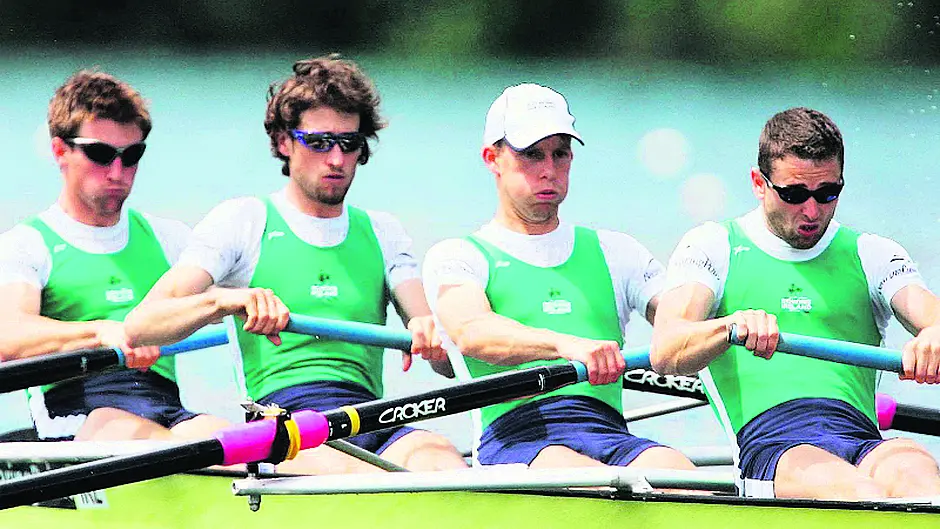Former Skibb Olympian saddened by loss of men’s lightweight four
Former Skibb Olympian saddened by loss of men’s lightweight four
BY KIERAN McCARTHY
FORMER Skibbereen Olympic rower Eugene Coakley is fearful that lightweight rowing could be wiped from the Olympic Games within the next eight years.
Coakley rowed for Ireland at the 2000 and 2004 Olympics in the Irish lightweight four, the boat that has represented Ireland more times at the Games than any other, but delegates at the Extraordinary Congress of FISA in Tokyo have voted to replace the men’s lightweight four with the women’s four in the interest of gender balance.
That proposal will now be presented to the IOC (International Olympic Council) for a vote in July to see if it will be accepted – and FISA believes it will meet the IOC gender equality goals, and maintain its athlete quota of 550. There will still be 14 rowing events, with it now evenly split, seven for men and seven for women. Of those 14, only two lightweight boats remain in the Olympic programme, the men’s and women’s lightweight double.
Coakley (37), who now lives in London, has described the decision to remove the lightweight four from the Olympic schedule as ‘a very sad day for lightweight rowing’.
Skibbereen Rowing Club’s Gary and Paul O’Donovan won silver medals in the lightweight double at the 2016 Olympic Games in Rio – and that’s the only men’s lightweight boat that now remains an Olympic event.
‘It’s a very sad day, to be honest. The way I see it, Paul and Gary need to make hay while the sun shines because in maybe four or eight years time, lightweight rowing could be removed completely from the Olympics,’ warned Coakley, who believes that the lightweight four event will suffer hugely as a result of this proposal.
‘Everything is geared towards the Olympic programme so if a boat is not in the Olympic programme then it won’t get as much funding.
‘The standard won’t be as high now because the only Olympic option for lightweight rowers is to go for the double scull, which will probably raise an already high standard in the double.
‘There will be lightweight rowers out there who might feel that they are not good enough for the double and without the four, they will ask if it’s worth their while.
‘A lot of rowers will ask if there is something in it for them now.
‘Look at Skibbereen’s Shane O’Driscoll and Mark O’Donovan, they were in a four last year for a bit but their only Olympic option now is to get into the Ireland-Skibbereen double.’
Since lightweight rowing was introduced in the Olympics in 1996, Ireland have finished fourth (1996 in Atlanta) and sixth (2004) in the A final, with Coakley in the Irish lightweight four in Athens in ’04.
‘It’s one of the best events in rowing. Similar to the double, everyone weighs in at 70 kilos, everyone trains as hard as each other, it’s a like for like competition and everyone would say it’s the best race of the programme,’ Coakley explained.
The likely knock-on effect is that the men’s lightweight double that the O’Donovan brothers compete in will become more competitive – but Coakley holds no fears for Gary and Paul in the face of increased competition.
‘At the top it’s already super competitive, it’s not a case of someone coming in and going a few seconds quicker than the rest, but what will happen is more countries will swell out the middle of the pack,’ he said.
‘The top level is super quick, Paul and Gary are well established and they have nothing to fear in that regard.’










